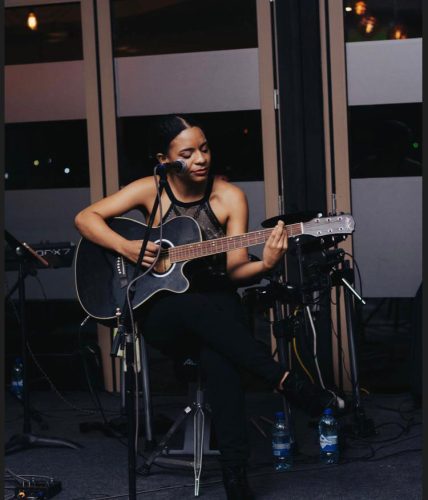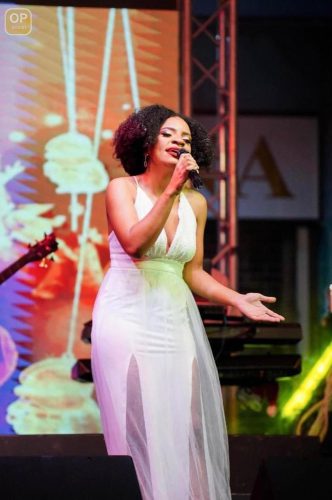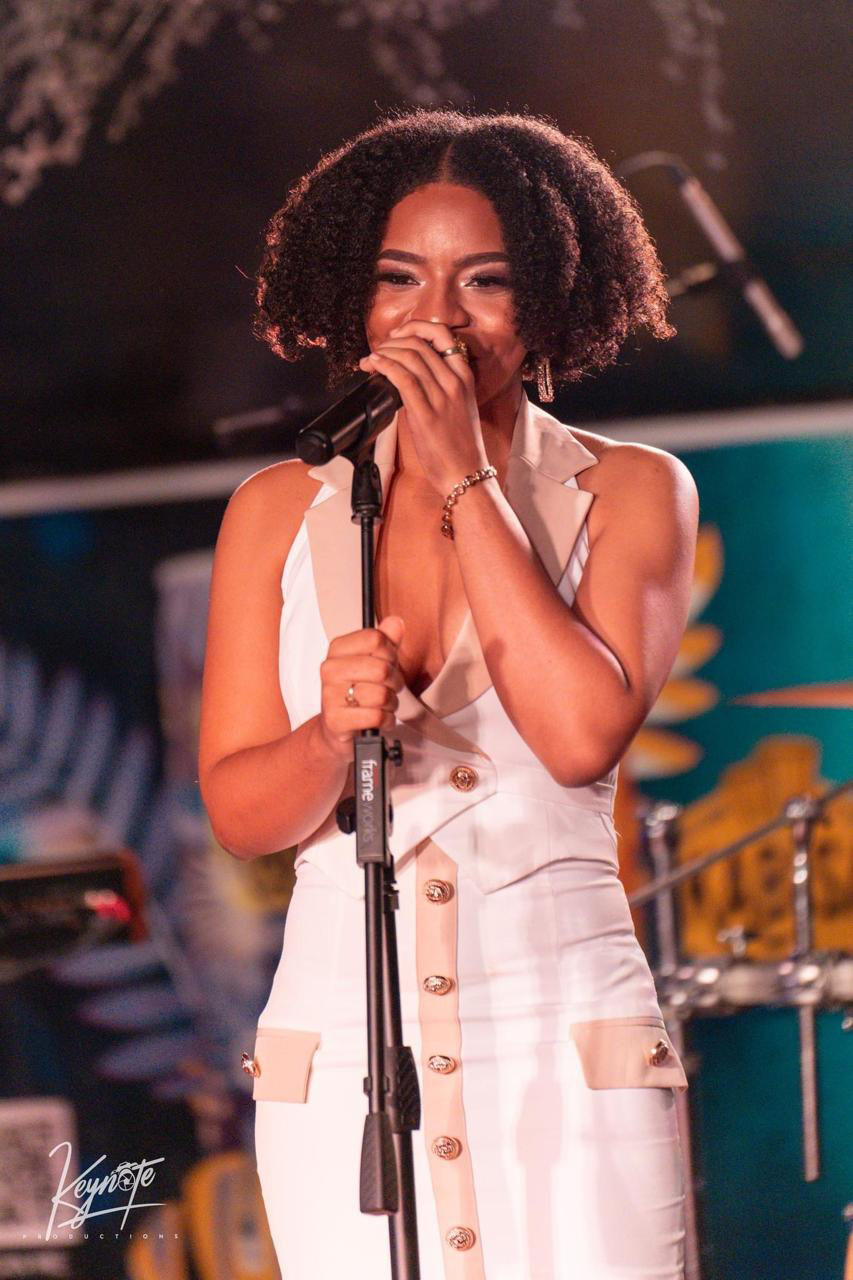The first instrument Cassie Adams learned to play was the steel pan, while she was at the Bishops’ High School (BHS). She credited that instrument as the tool that helped ground her while she was dealing with the stress of being a high school student.
She mentioned that coming from BHS, there was a lot of pressure to excel academically and the steel pan served as a recreational tool to help alleviate some of this pressure. Additionally, she turned to the instrument to process and destress from any conflicts she had with her friends at school.
The instrument did not only serve as a tool for stress relief, it also helped Adams develop a love for music. At 19, she received her first guitar as a birthday gift. Her dad, who is also a musician, showed her the basics, but due to his busy work schedule, Adams learned the rest from YouTube. Music became a core part of her life. “I don’t know who I would’ve been or what I would’ve been without music,” she expressed. She added that many of her academic peers regretted not finding a recreational activity to explore life outside of academia, with some even experiencing mental breakdowns due to academic pressures. Music helped balance her life.

Balance, however, is not the only benefit Adams gained from her music. Through her music, she was able to travel to places like Linden and Lethem, and even performed in the Dominican Republic, where she represented Guyana at a panel for the UNESCO Transcultura Programme. Travelling allowed her to meet other musicians from around the Caribbean, and she discovered that the challenges in Guyana were not unique. She found that financial issues also afflicted countries like Jamaica and Trinidad, where artists faced similar struggles as those in Guyana. There is also a lack of formal institutions that teach music in some of those countries and these shared challenges and continuing to create helped Adams to feel less alone in her own journey.
Adams described her musical journey as similar to a 9-5 job, requiring the same intensity and tenacity to

succeed despite facing rejections. She began recording music with Rondell Glasgow just after high school and witnessed the development of his studio, even though the producer initially lacked the finances to fully develop it. Over time, the studio grew. This experience taught her that music is something an individual truly needs in life, as there are many obstacles, such as financial challenges, and it is not always immediately fulfilling.
Adams also said that there are ups and downs. Sometimes she would compose a song and think that was good, only to listen to it again and decide it was not. She also has to contend with lots of noes. She said she has taken no in stride, but also emphasised the importance of listening to feedback, even when it includes initial rejections, to identify constructive criticism for growth. She mentioned that letting go of one’s ego is crucial, admitting that she herself has struggled with this.
Adams believes that listening to feedback can actually improve one’s craft.
After she sang a track for Independence Day and played it for her mentors, the response was not positive, despite her own love for the song. She was urged to return to the drawing board and improve the song’s composition. She accepted the critique, reworked the song, and it is currently in production.
Adams also advised artists to be mindful of timing when releasing music. During February, when Mashramani celebrations are in full swing and people are more in a party mood, it might not be ideal for an R&B artist like herself to release new songs, she said. She noted the difficulty of gaining support as a soul music artist and pointed out the low radio play of local artists as a significant problem. Addressing this issue could help local artists gain more appreciation and exposure, she posited. There are many challenges, but Adams believes this is her purpose.
She said even though the business can sometimes be risky she often reminds herself that she is committed to music.
“When I leave this Earth, I want to be able to say that I used my gifts and I completed the things I said I was going to do, and that’s music for me. I need to see it to its completion,” Adams said. She said she hopes people can appreciate the candidness of her lyrics because artists who are authentic are the ones she admires the most. She said when an audience hears her lyrics, they must be inspired to go after their dreams.
Adams urged artists to keep working on their music, emphasising that consistency is key for improvement. She has received support from both her parents. Adams spent a lot of time with her dad growing up. Initially, he was hesitant about her entering the music field due to its financial instability, but he eventually saw her commitment and changes in the industry, and she gained his full support. He has urged her to do her best in this field. Adams also credits her mom as a great support, even when her father did not always agree with some of her decisions.
In addition to her family, Adams has received support from friends and other influential figures. Andrew Tyndall, the Director of National Events, has pushed her to improve. Her producer, Rondell Glasgow, is not only a professional collaborator but also an important friend. Adams believes that chemistry between an artist and a producer is crucial, which comes from years of friendship and knowing each other outside the music room. She also credits Abel Stokes, another musician, for being supportive of her journey.
Adams is currently on another journey, having given birth a few weeks ago. She is aware of the stigma surrounding musicians who are mothers and the expectation that motherhood prevents women from pursuing their dreams and wants. Adams is determined to change this narrative.









